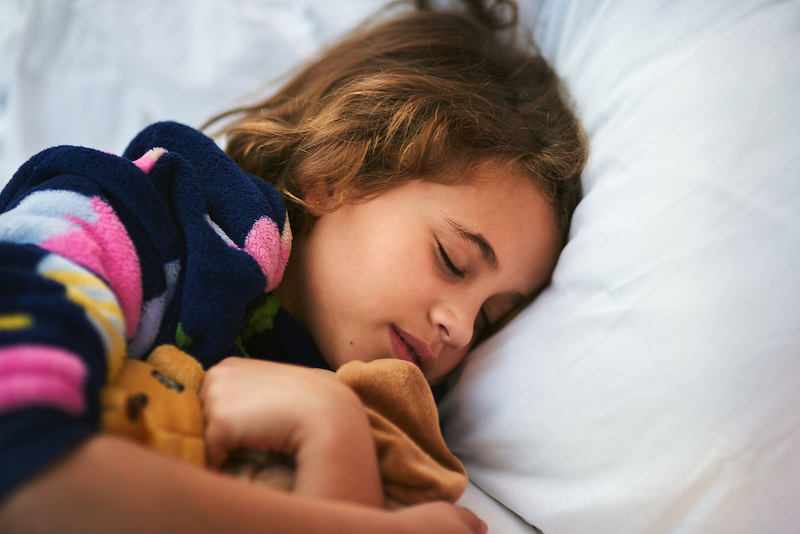Topics

Photo: Getty Images
As we all continue in a new world of working from home and home schooling for the foreseeable future, there are many people struggling to balance all of these competing responsibilities. Recently, we’ve noticed an uptick in parents seeking advice regarding their children’s sleep and problems with sleep during this challenging time. Your children’s health and wellbeing remains a priority for all pediatric care providers, so we’re addressing the most common pediatric sleep related questions that may arise during this pandemic.
How much sleep should my child be getting now that they are homebound?
For children, especially younger children, schedules are important to maintain a sense of normalcy. Keeping a regular sleep/wake schedule and maintaining normal bedtime routines will ensure your children do not have difficulty once school resumes. In general:
- Children between the ages of 2-5 should get on average 12-15 hours of sleep (inclusive of naps)
- Children ages 6-10 should try to sleep 10 hours on average
- Children ages 11-16 should sleep 8-9 hours on average
- Children ages 16 and older should sleep 8 hours on average
My child is not able to sleep well because of the pandemic. What can I do to help?
It’s normal for children to have some anxiety regarding the current global situation. Parents can use age appropriate conversation to discuss their child’s fears and understanding about what is currently happening in the world. Also, limiting exposure to news outlets and screening information that your child has access to may ease some of their worries. Anxiety is a common cause of childhood insomnia and is best treated with maintaining a healthy sleep schedule and establishing a bedtime routine with adequate sleep hygiene. Sleep hygiene for children includes:
- Turning off all electronic devices at least 1 hour before bedtime
- Using dim light exposure in the evening to create a calm and relaxing environment and increase the body’s natural release of melatonin (a sleep cycle regulator)
- Warm baths or showers in the evening to lower core body temperature (a signal for the brain that it’s time for bed)
- Avoiding strenuous exercise close to bedtime
- Exposure to bright natural light in the morning upon waking up
My child is still not sleeping well. When should I start to worry about this?
Persistent insomnia and lack of sleep in children can have long-term developmental and behavioral consequences. You may start noticing your child is more irritable or is having frequent outbursts throughout the day. In older children, they can also be sleepy and tired during the day. It’s important to talk to your health care provider if you have any concerns regarding your child’s sleep during this time.
Is it safe to use melatonin to help my child sleep?
As with any supplement or medication, it’s important to speak with your child’s health care provider prior to starting it. In general, melatonin is a safe over-the-counter medication if used properly under the advice of a health care provider. If you have continued concern about your child’s sleep, an appointment with a board certified sleep medicine doctor may help.
During this time, Texas Children’s Sleep Center is conducting eHealth visits for patients living in the state of Texas. For more information, please call 832-227-2132.


